
Pyotr Ilyich Tchaikovsky was a Russian composer of the Romantic period. He was the first Russian composer whose music would make a lasting impression internationally. Tchaikovsky wrote some of the most popular concert and theatrical music in the current classical repertoire, including the ballets Swan Lake and The Nutcracker, the 1812 Overture, his First Piano Concerto, Violin Concerto, the Romeo and Juliet Overture-Fantasy, several symphonies, and the opera Eugene Onegin.
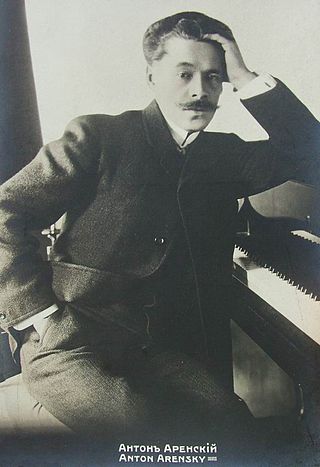
Anton Stepanovich Arensky was a Russian composer of Romantic classical music, a pianist and a professor of music.
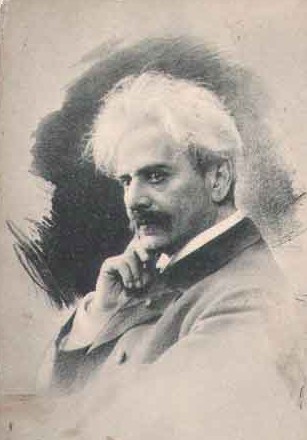
David Popper was a Bohemian cellist and composer.

The Piano Concerto No. 1 in B♭ minor, Op. 23, was composed by Pyotr Ilyich Tchaikovsky between November 1874 and February 1875. It was revised in 1879 and in 1888. It was first performed on October 25, 1875, in Boston by Hans von Bülow after Tchaikovsky's desired pianist, Nikolai Rubinstein, criticised the piece. Rubinstein later withdrew his criticism and became a fervent champion of the work. It is one of the most popular of Tchaikovsky's compositions and among the best known of all piano concerti.
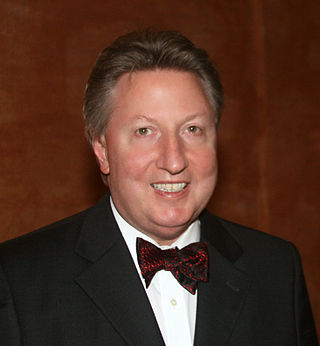
Leslie John Howard is an Australian pianist, musicologist and composer. He is best known for being the only pianist to have recorded the complete solo piano works of Franz Liszt, a project which included more than 300 premiere recordings. He has been described by The Guardian as "a master of a tradition of pianism in serious danger of dying out".
Wassily Sapellnikoff, was a Russian empire-born Russian pianist.
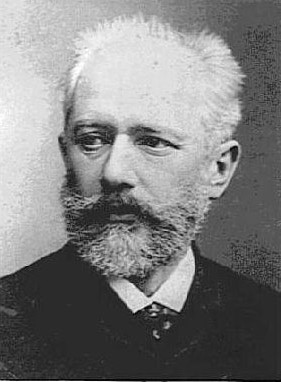
The Cello Concerto of Pyotr Ilyich Tchaikovsky is a conjectural work based in part on a 60-bar fragment found on the back of the rough draft for the last movement of the composer's Sixth Symphony, the Pathétique. In 2006, Ukrainian composer and cellist Yuriy Leonovich completed the work.

Pyotr Ilyich Tchaikovsky's Piano Concerto No. 3 in E-flat major was at first conceived by him as a symphony in the same key. But he abandoned that idea, jetisoned all but the planned first movement, and reworked this in 1893 as a one-movement Allegro brillante for piano and orchestra. His last completed work, it was duly published as Opus 75 the next year, after he died, but given by publisher Jurgenson the title "Concerto No. 3 pour Piano avec accompagnement d'Orchestre".

The Andante and Finale is a composition for piano and orchestra that was reworked by Sergei Taneyev from sketches by Pyotr Ilyich Tchaikovsky for the abandoned latter movements of his single-movement Piano Concerto No. 3 in E-flat, Op. 75.
The Concert Fantasia in G, Op. 56, for piano and orchestra, was written by Pyotr Ilyich Tchaikovsky between June and October 1884. It was premiered in Moscow on 6 March [O.S. 22 February] 1885, with Sergei Taneyev as soloist and Max Erdmannsdörfer conducting. The Concert Fantasia received many performances in the first 20 years of its existence. It then disappeared from the repertoire and lay virtually unperformed for many years, but underwent a revival in the latter part of the 20th century.
Pyotr Ilyich Tchaikovsky's Symphony in E-flat was commenced after Symphony No. 5, and was intended initially to be the composer's next symphony. Tchaikovsky abandoned this work in 1892, only to reuse the first movement in the single-movement Third Piano Concerto, Op. 75, first performed and published after his death in 1895. Two other movements were reworked for piano and orchestra by Sergei Taneyev as the Andante and Finale, which was published as Tchaikovsky's Op. posth. 79 in 1897.
The Fantasia on Hungarian Folk Melodies, commonly known in short form simply as the Hungarian Fantasy, is Franz Liszt's arrangement for piano and orchestra of his Hungarian Rhapsody No. 14, originally for solo piano. The Fantasia was written in 1852 and premiered in Pest on June 1, 1853, with Hans von Bülow as soloist and Ferenc Erkel conducting the orchestra.
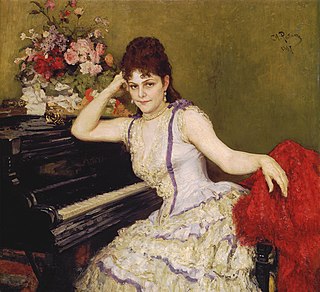
Sophie Menter was a German pianist and composer who became the favorite female student of Franz Liszt. She was called l'incarnation de Liszt in Paris because of her robust, electrifying playing style and was considered one of the greatest piano virtuosos of her time. She died at Stockdorf, near Munich.

Max Erdmannsdörfer was a German conductor, pianist and composer.
Vera Florence Bradford was an Australian classical pianist and teacher, with a very long career. Her playing was admired for its depth and beauty of tone, classical unity and tremendous power.

While the contributions of the Russian nationalistic group The Five were important in their own right in developing an independent Russian voice and consciousness in classical music, the compositions of Pyotr Ilyich Tchaikovsky became dominant in 19th century Russia, with Tchaikovsky becoming known both in and outside Russia as its greatest musical talent. His formal conservatory training allowed him to write works with Western-oriented attitudes and techniques, showcasing a wide range and breadth of technique from a poised "Classical" form simulating 18th century Rococo elegance to a style more characteristic of Russian nationalists or a musical idiom expressly to channel his own overwrought emotions.
In classical music, it is relatively rare for a work to be written in collaboration by multiple composers. This contrasts with popular music, where it is common for more than one person to contribute to the music for a song. Nevertheless, there are instances of collaborative classical music compositions.

Itter Castle is a 19th-century castle in Itter, a village in Tyrol, Austria. In 1943, during World War II, it was turned into a Nazi prison for French VIPs. The castle was the site of an extraordinary instance of the U.S. Army, German Wehrmacht, Austrian Resistance, and the prisoners themselves fighting side-by-side against the Waffen-SS in the battle for Castle Itter in early May 1945 before the end of the war in Europe.
The Sérénade mélancolique in B-flat minor for violin and orchestra, Op. 26, was written by Pyotr Ilyich Tchaikovsky in February 1875. It was his first work for violin and orchestra, and was written immediately after completing the Piano Concerto No. 1 in B-flat minor.

Andrej Ivanovich Hoteev was a Russian classical pianist.











